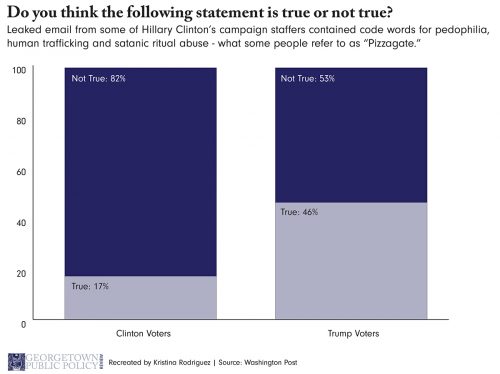2016 Was The Year of Disruption
For better or worse, last year was all about our Spring Edition theme, Disruption. What started out as a theme for discussing fun and nerdy policy topics like labor and flying cars became something else entirely. As we merrily say goodbye to 2016 and stock up on canned goods and batteries for 2017, let’s take a look at the biggest Disruption news of the year.
The Gig Economy Faces Resistance
The firms I wrote about in August are beginning to face stiff resistance from activists, politicians, and their own checkbooks.
First, as always, is Uber. The ridesharing company’s fortunes have been mixed this year. Working in Uber’s favor is the company’s constant growth and investments into self-driving car/trucks, flying cars, and (much more ambitious here) food delivery. However, this year has seen multiple court rulings against Uber, forcing them to consider their drivers as employees, not contractors. Giving drivers full benefits strains Uber’s already troubled business model. Other problems include well financed competition from China and companies like Tesla. Pando has a great list of issues Uber needs to solve, including resistance from regulatory agencies like the DMV. Going into 2017, Uber is no longer shaping labor or transportation policy, which really means “Uber is no longer breaking the rules with impunity.”
The same is true for Airbnb, which at first seemed to influence the policy discussion around renting and owning real estate by also skirting property laws. Without any real proof one way or the other, Airbnb and activists are fighting a battle, city by city, over whether “commercial” Airbnb usage hurts or helps local residents. Instead of focusing on planned touring and travel agency services, the firm must contend with lawsuits and restrictive statutes in many big cities. The debates going on around the country are bringing up another important policy topic: gentrification. Last year saw great coverage of gentrification issues and the way Airbnb plays into it. It’s up to policy analysts (us) to figure out if Airbnb is actually contributing to it or not.
:format(webp)/cdn3.vox-cdn.com/uploads/chorus_image/image/51537167/airbnb_3.0.0.jpg)
This year also saw the first fatal car accident involving a self driving car. Although the man was speeding during ‘Autopilot’ mode, all self-driving car efforts now have to contend with a more skeptical regulatory landscape. This was bound to happen, though that it did not happen to the man caught sleeping in his Model S is a small miracle. The most overlooked policy story of the year with Tesla, however, is that Tesla owners will one day be able to send their cars out to share rides, disrupting the ride-sharing market. The Tesla service raises important questions on who is responsible for car accidents or malfunctions during these rides, or how these empty cars will be protected from carjackers. This also begs the question of whether Tesla can actually prevent their customers from using Autopilot mode while using competing ride sharing services.
Overall, this year saw disruptors meet more regulatory resistance than before, as activists and agencies began to rein in Silicon Valley’s libertarian impulses. While autonomous vehicles and the gig economy are still on the rise, these firms must now play by the rules.
Liberalism Disrupted
Disruption as a theme for this year’s Spring Edition was decided upon before Brexit, the first sign that much more than the gig economy was going on. This year saw a relentless war between the liberal status quo and the ‘alt-right,’ a global movement dedicated to nativism, closed borders, and simple solutions. It’s clear who won in 2016.
From the first strike against the status quo, Brexit, to the hardest, Trump’s ascendancy, liberalism suffered a string of defeats from less educated, older, and whiter voters. Feeling ignored by politicians and persecuted by globalization, these voters cut short several political careers. David Cameron, Hillary Clinton, and many others fought them and lost.
Now, despite my own opinions on alt-right ideology aside, we should all be worried. I’ll take the nation’s anti-bullying martyr, Jeb Bush, as an example. When he was taken seriously, Jeb! was the Republican candidate with the largest policy portfolio. In an alternate and better world, I would be critiquing President-Elect John Ellis Bush Bush’s plan to privatize Social Security, unaware of how grateful I should be that there is a plan to criticize.
What we are walking into is a world without plans, but simple solutions to complex policy issues.
First, alienation is being pursued as a foreign policy goal, with Trump unsettling decades old relations while moving towards Russia, and with Theresa May putting together a plan to remove the UK from access to its largest market. These are the largest foreign policy shifts since the end of the Cold War.
The other solutions offered by the alt-right are as simple as they are ineffective. Don’t like immigrants? Build a wall, despite the fact it won’t work and solves a nonexistent problem. Feeling threatened by terrorists? Bring back torture and ban Muslims, despite the fact that neither would work. Also, all the benefits of leaving the European Union were fabrications, leaving the UK little to look forward to besides economic slowdown.
The worst example of this trend is Rodrigo Dutarte, the President of the Philippines, and his ineffective and murderous war on drug addicts. Let me just say this: when you need to look up a world leader’s name along with ‘latest death toll,’ something’s wrong. The illegal and unethical nature of what he is doing is made worse by the fact that similar drug wars, the kinds that Trump loves, don’t work and are harmful.
The solutions offered by the alt-right are as simple as they are violent.
Under the guise of populism, these rising stars of ‘illiberal democracy’ are moving a step away from traditional right-wing politics by disrupting old rules and institutions. Despite vowing to “drain the swamp,” Trump has named a basket of billionaires to his cabinet, further entangling his administration in a vast web of conflicting interests that would take years to investigate, if anyone actually cared to.
While I could spend the rest of this article and my life discussing Trump’s various unethical practices (just last week named his son-in-law a Senior Advisor), there is a lot worse going on elsewhere, such as the Law and Justice Party in Poland weakening their Supreme Court, the brutalization of refugees in Hungary, or Dutarte declaring open season on drug users without any legal precedent.
At the very center of the swamp is Vladimir Putin, who has enough international connections with the leaders I’ve mentioned to host a wild and corrupt party. Behind nearly every successful illiberal movement is evidence of Kremlin intervention.
The policy implications of the alt-right’s ascendancy are not entirely clear. So far, the domestic policy platform is not having a plan while upwardly distributing power and wealth. The foreign policy implications include less cooperation and more power for Putin.
Alt-Truth
What was most disrupted last year was the truth. The advent of fake news and Trump-style politics is a worldwide phenomenon that has led to alternate versions of the truth for each ideology. The division of truth leads to a lack of compromise in policy solutions and to the absurd situations like Trump voters cheering on the repeal of Obamacare without understanding that they disproportionately depend on it.
Lack of common support for the truth is bad for policymaking, which is fine for Donald Trump, since he does not care about policy. My belligerent opinions on Trump’s character and values aside (If you are my friend on Facebook, sorry), this should be concerning to all of us.
From Brexit, the victory against ‘experts,’ to Donald Trump, champion of the misinformed voter (half of whom believe he won the popular vote), 2016 was the year in which knowledge lost. It may seem tempting to remain objective, but when alt-right pundits threaten the ‘experts’ and elites, that’s us. We are the ‘experts’ for caring about policy.

We now live a post-truth world. For us policy wonks, this is deeply threatening, as we rely on some measure of shared truth across party lines to compare and compromise on policies. Without truth, the policy world is in danger of irrelevance.
Looking to 2017
As we enter a new year and a new era, I will leave you with a few questions, since making predictions is so last year:
Can the alt-right govern? With historically low approval ratings and endless scandals, everything is the same as it ever was for Donald Trump. Despite the scandals, Trump can get plenty done as long as congressional Republicans do not turn on him. In the UK, Brexiteers Nigel Farage, Michael Gove, and Boris Johnson saw their chances of leading anything fizzle away, as pro-EU Prime Minister Theresa May was left managing a task she never wanted. She sets B-day somewhere in 2019, which leaves plenty of time for Jeremy Corbyn to usher in the socialist revolution as we all know he will. Dutarte has no concerns right now, as admitting he is literally a murderer has not changed his approval numbers.
Can liberals fight back? Democrats, locked out of every branch of the government, can’t block Trump’s nominees while liberals around the world are not able to reverse extrajudicial killings or Brexit. The next real opportunity to stop illiberal momentum is to keep Marine Le Pen away from the French Presidency in May.
Can disruptors regain their footing? This year is set to be a banner year for autonomous vehicles, the private space industry, and the gig economy… is what people said a year ago. All eyes are on Uber and Airbnb to see if they can overcome imminent regulatory fights and keep generating revenue and excitement. We all look forward to Amazon filling up the sky with camera-equipped drones so that we can buy things online we can walk 10 minutes to a 7/11 for.

Can we fight back against disinformation? For the sake of crafting cutting edge policy solutions to cutting edge problems, journalists, activists, politicians, and policy analysts need to restore trust in objective reporting and political institutions. Of course, it will be useless to do so unless we all make sure not to condescend to those who are not ‘experts.’ People filed their protest votes for a reason.
Thanks for reading the latest Disrupting your [time] article! Keep an eye out for more Disruption articles, and our 2017 Spring Edition. Did I miss something? Comment below or tweet some of your favorite Disruption news with the #GPPRDisruption hashtag.
Austin Kabbaz Szabo is an Executive Spring Editor for GPPR and designer of the Spring Edition website. Originally from Los Angeles, he recently received a Masters Degree in Public Policy at the McCourt School in Georgetown. He has a B.A. in Political Science and Classical Civilizations from Loyola Marymount University, where he was a Senior Editor for Asia Media International and led the university's Archeology Center. He’s passionate about income inequality and women’s rights, and dreams of living in a truly liberated world. He loves archery, baking, and awful music.
